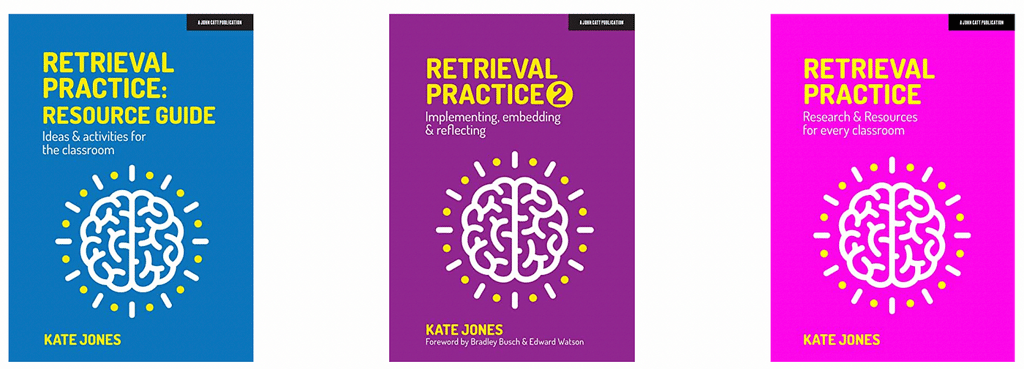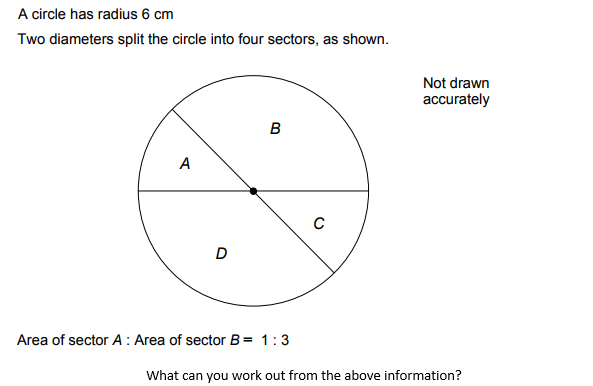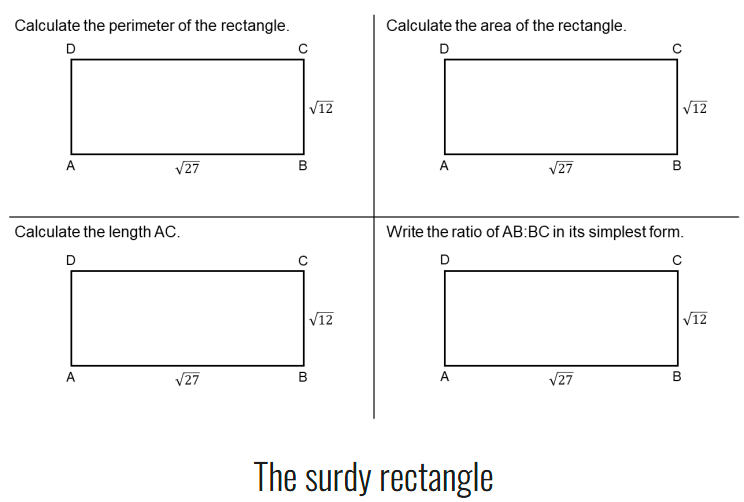Exam (Silly) Season is here - Retrieval Practice
I may have posted about this before, but I can't recall...
J. Craig Evans
4/28/20254 min read


That time is here again; our exam classes will soon be disappearing on study leave, before they sit their (probably terminal) examinations. Even our younger KS2/KS3 classes are starting to have one eye on any looming end-of-year tests, and as teachers we certainly have one eye on the inevitable performance/progress metrics we have been given to hit for our classes. Perhaps at this time more than any other, we are thinking about how we get our students to retrieve their prior learning, to strengthen that ability to do so under pressure, and to be able to identify which learning needs to be retrieved (particularly in a mathematics setting, where problems that look similar on the surface may have completely different underlying characteristics - SSDD problems, which I will talk about more on a different post in the future!
So, what can we do as teachers to help with this? Also, and I think importantly at a time where students' anxieties and mental health are acutely fragile, how can we do this in ways which do not cognitively overload, or induce wild panic in our students?
Firstly, I'd recommend some wonderful little books by Kate Jones on retrieval practice. For those who are interested in the pedagogy and research, there are two books mainly focused on this side of things (cunningly called Retrieval Practice and Retrieval Practice 2) which are fab. However, for those mostly interested in some ideas on fun and engaging tasks to help with student retrieval (regardless of subject area), I particularly recommend the resource guide which has a load of fantastic ideas - my personal favourites are variations on a 6x6 grid where students in pairs take turns to roll two dice, and have to answer the question on this square in the grid (potentially with some points on the line and your choice of extrinsic motivational factors if absolutely necessary - though of course this isn't encouraged!).


I think the above hones in on my basic feelings here - there is more than enough testing and high-stakes assessment going on (and for exam classes, that will have gone on through their schooling). I personally find that the best engagement and outcomes with challenging retrieval tasks comes when it is low-stakes, framed in a 'fun' way (smoke and mirrors).
As mentioned above, there is also the need to give students (more specifically in mathematics, at this point) the opportunity to identify what a problem requires, in a situation which could require one of a number of things. There are two types of task that I love to interweave into my revision and review sections:
1) Goal-free problems - giving pupils the 'set-up' and asking them to write the punchlines! I find this incredible for seeing both how much mathematics students can recall, as well as (particularly for MAT students) how creative they can be with the problems they create). Consider this very early attempt at a goal-free problem using the stem from an EdExcel question:


From this simple stem, pupils can deduce areas of sectors and arc lengths, perimeters of sectors, angles (including vertically opposite), perhaps even triangles and segments by drawing obvious chords... but then they can go wild. Some students created data sets which could create a pie chart represented by the above. A few considered things such as cylinders with an arbitrarily chosen height to consider things such as volume scale factor. One particularly talented child with a love of circle theorems went ham on adding tangents, additional points and finding all sorts of things!
For more information and a ton of resources, check out https://goalfreeproblems.blogspot.com/ - run by Peter Mattock, who is another incredible author (check out his Visible Learning book and related ones!). The (in)famous Craig Barton also mentions these both in his books and on his incredible podcast!
2) SSDD problems - something talked about in-depth by Craig Barton (it is going to be hard to write any pedagogy-related post on mathematics teaching without his name coming up!) and he also runs a website on sharing resources: https://ssddproblems.com/
As an example (just the first one I stumbled across on the site), this was created by Dan Ealey:


The same picture four times, but four very different questions (requiring different base knowledge, and the ability to identify Pythagoras' as well as the specific surds skill required). Again, I'm sure this can be gamified in some way for those groups which need that bit more motivation...
The other OBVIOUS way to incorporate retrieval practice (and the one which the vast majority of mathematics teachers have employed since the Dawn of Time (TM)) is within the starter. Whether this takes the form of a pre-prepared set of questions on a prior term's work (such as those generated by the website MathsBox - it's a paid website but I'd recommend any school have it!!) or just a few quick questions on mini-whiteboards before getting your main lesson underway. Doug Lemov (author of Teach Like a Champion, another wonderful book) has an illustration of a teacher (Charlotte Pottinger) using some really good questioning methods with a Year 6 class - it can be found here!
One final piece of bedtime reading I'd recommend, returning back to my overarching idea that retrieval practice is incredibly powerful even if used 'playfully', is by Rachael Cattrall at the Education Endowment Foundation. The link to it is here.
Do you have any go-to methods for retrieval practice? I'd love to hear from you (really, I would - I'm like that)! Please get in touch!
